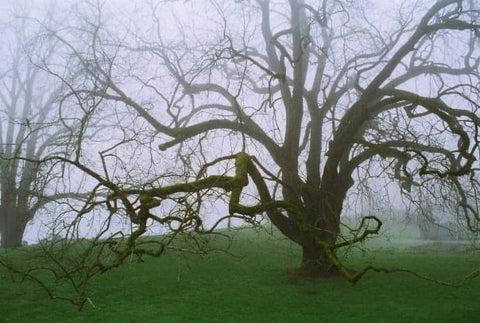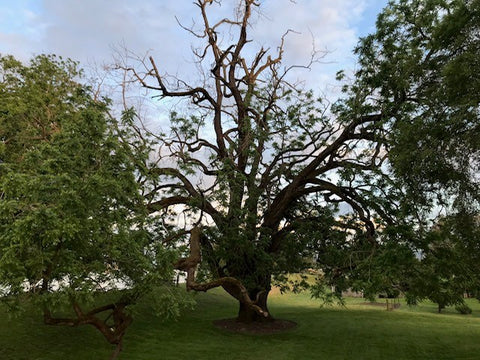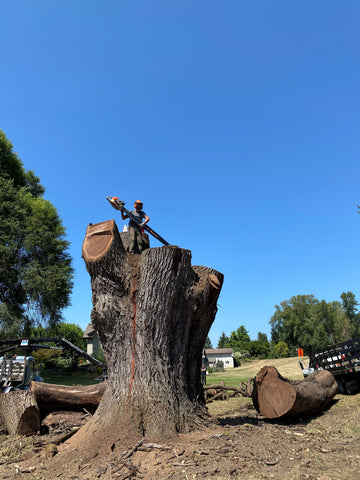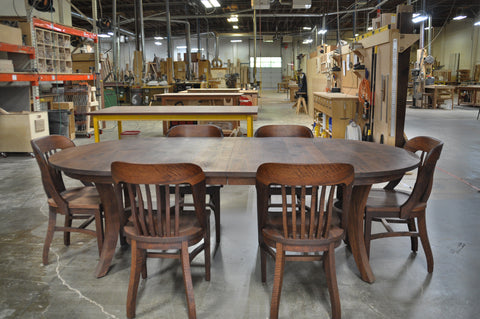Off a small road on Sauvie Island, in Portland, Oregon, stood a majestic black walnut tree with a trunk circumference of 27 feet. With a typical circumference of around 12 feet, this black walnut tree was believed to be one of the largest ever recorded. It stood over 100 feet high with an average crown spread of about 150 feet, and has been cited as the “national champion” black walnut in the U.S.

The tree is thought to have been planted in the 1880’s. Over the years, it has experienced many changes, but remained a constant presence on this island on the Columbia River. It has been witness to many important life events, including a centennial birthday for one of the previous owners of the property where the tree stands.
The End of an Era
In recent years, the tree faced declining health. In 2019, symptoms of Thousand Cankers Disease appeared, which creates blockages that prevent nutrients from traveling throughout the tree.

Unfortunately, the condition quickly deteriorated. Shannon and Jalal, who own the property where the tree stood, conducted research and consulted experts in an effort to save the tree. Unfortunately, they were unsuccessful, and the tree was deemed too dangerous to be left standing, as limbs were beginning to break off and fall.
Shannon and her family were heartbroken. Standing for about 150 years, the tree was not only a pillar in the community, but in her family as well. If the tree could not remain, she wanted it to live on in another form. With this in mind, she contacted Goby Walnut, requesting they help preserve the tree’s legacy. Goby reached out to The Joinery to collaborate on the project to create beautiful furniture built to also last for generations.

In the summer of 2020, Aaron at Goby Walnut brought in stakeholder partners to strategize how to safely take a tree down of this size. Then in August, the tree was felled and the countdown on the project began. As a general rule, each inch of finished lumber thickness requires a year of air drying. Since Goby milled the tree into 6/4 - 8/4 lumber (or 1.5 -2 inches thick) for our project, it took two full Portland summers to properly dry.

During this process, our team worked with Shannon and Jalal on the furniture designs that we hope their family will enjoy for generations. Along the way we visited the tree site on Sauvie Island and hosted Shannon and Jalal at our Shop to discuss the designs. They ultimately settled on a Jost Extension Dining Table and set of Banjo Chairs. Then, earlier this Spring, after two and a half years of conditioning, her black walnut was ready to live another life.
A Legacy Lives On
When the lumber arrived at The Joinery, our team worked with Shannon and Jalal to determine the specific boards they would like to feature for the table top and chair backs. Then our skilled craftspeople took over. Nick built the Jost Extension Table, and Brian crafted the Banjo Chairs – our most challenging chair design.
The result is a stunning collection of furniture that reflects the tree's magnificence and natural beauty.


The furniture created from this incredible tree is more than just a collection of beautiful pieces. It is a symbol of the tree's enduring legacy and a testament to the tree's strength and resilience. We are honored to have been a part of the project to preserve this amazing tree’s legacy for Shannon, Jalal and the rest of their family for generations to come.

